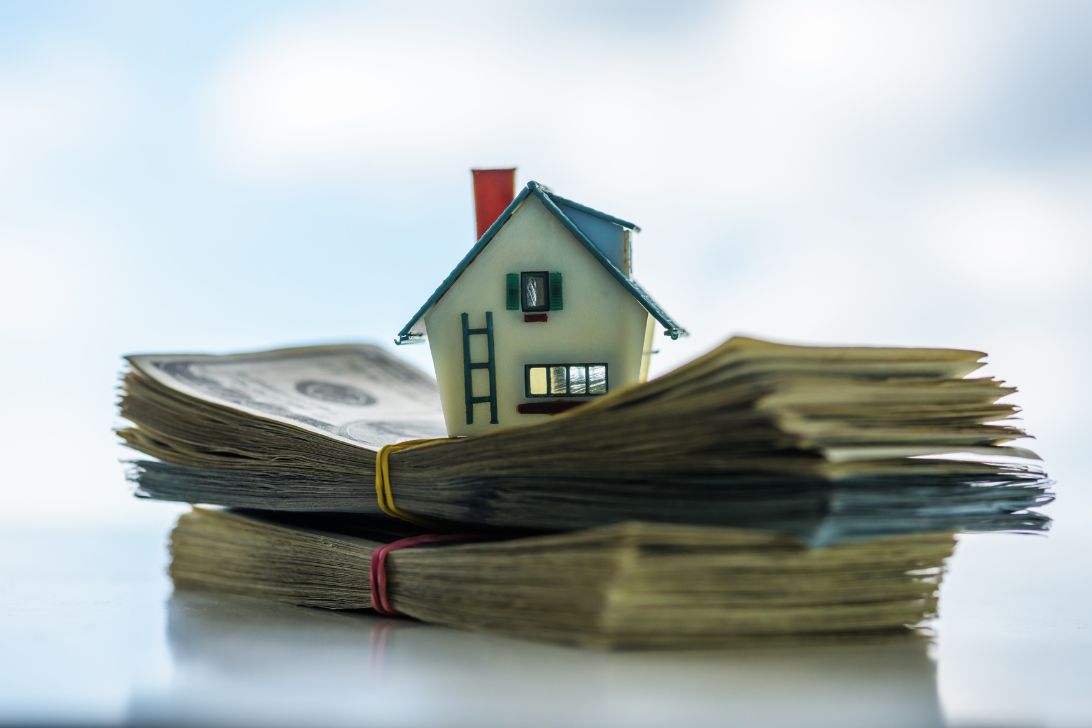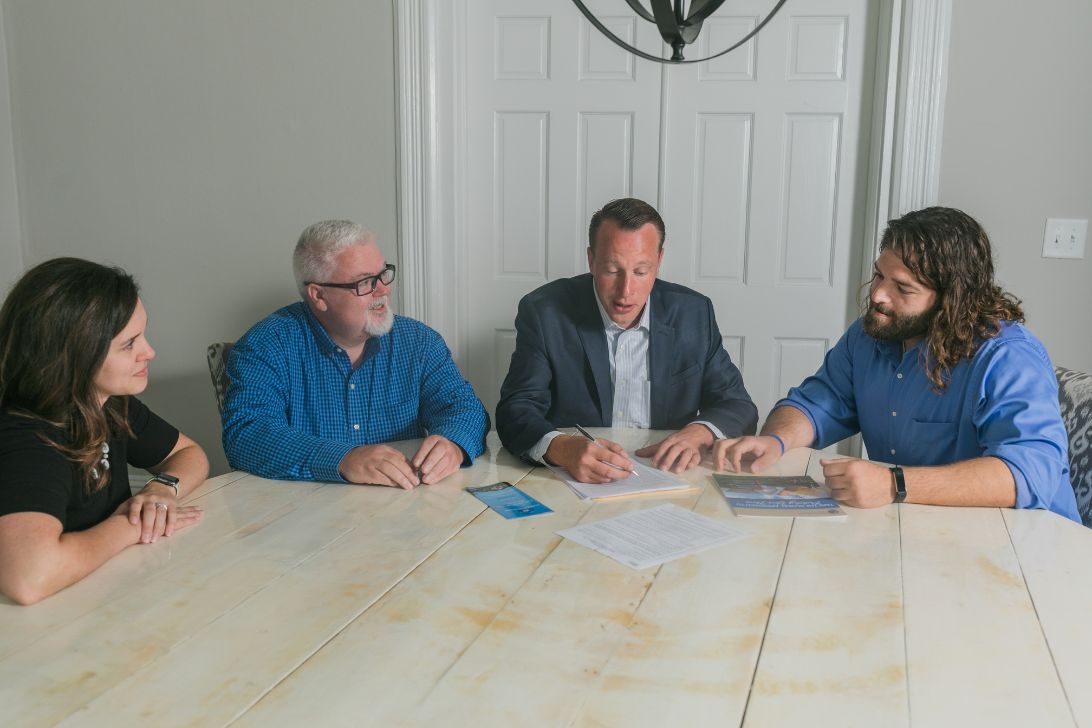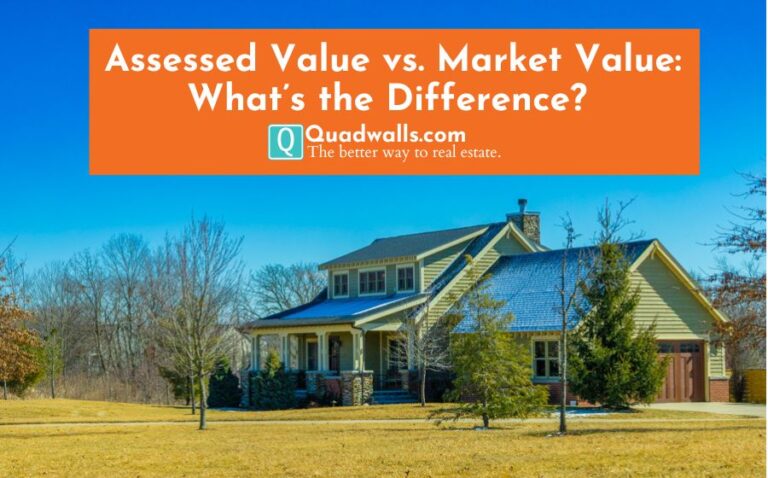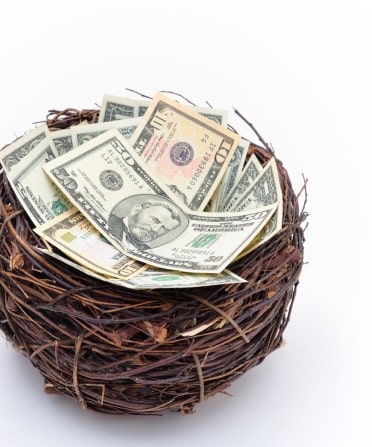What Happens in a Recession to House Prices?
As fears of a recession increase you may wonder how does recession affect house prices. A recession can affect home prices, but you should not assume home prices will fall. Any change in home prices during a recession will be influenced by specific factors. Specifically, these are the supply of homes for sale and the health and size of the active audience of homebuyers.
Every day we are helping people understand how much their house in Northwest Indiana is worth. If you’re not from Northwest Indiana but you want to know what happens to house prices in a recession you should keep reading this article.
What a Recession Will Mean for the Housing Market

A recession is a notable reduction in economic activity occurring over a continuous period of time. Recessions typically infect most parts of the economy including the housing market. A recession can affect the housing market in several ways.
The most likely effect is lower overall activity. Fewer homeowners willing to sell and fewer homebuyers willing to buy will result in fewer transactions. Observers and professionals working in the housing market should expect to see fewer home sales and purchases during a recession.
Secondly, homebuyer and seller behavior within the market will change. Home sellers of more expensive homes may become more ready to compromise with homebuyers. This can open up opportunities for homebuyers. On the other hand, homebuyers will likely become more defensive regarding home prices and more demanding on concessions.
Lastly, home prices during a recession can become more volatile. However, a large reduction in prices is not a certainty. Housing demand, employment rates, interest rates, and inflation all affect home prices.
What Happens to Home Prices in a Recession?

Housing prices during a recession can go up, down, or sideways. The housing market needs supply and it needs buyers. To better understand what to expect or to more accurately make predictions about the housing market during a recession you need to understand the factors which influence housing supply and homebuyers’ decision making.
5 Factors Affecting Homebuyer Behavior During a Recession
The following factors have the greatest effect on pushing the U.S. housing market in one direction or another. Understanding these can help you better foresee what happens to housing prices during a recession.
1. The Unemployment Rates
The unemployment rate will affect real estate prices during a recession. If unemployment remains low many people will stay confident in their ability to have an income. This will increase homebuyer confidence and support higher home prices. However, if the unemployment rate increases many buyers will become reluctant and wait for a more certain time to buy a home. In this instance home prices will fall.
2. Mortgage Interest Rates
Mortgage interest rates have a huge influence on home prices. There is a high probability of seeing decreasing values in the housing market during a recession if the mortgage interest rate is high and moving higher.
First, a higher mortgage interest rate means it costs more to borrow the money to buy a home. Therefore, to get the same repayment price the buyer needs to offer less for the home. Alternatively, buyers can offer the same price but will have a higher house payment due to the higher mortgage interest rate.
Borrowed Amount | Interest Rate (30-Year Loan) | Monthly Principal & Interest Payment |
$350,000 | 3.00% | $1,476 |
$350,000 | 4.00% | $1,671 |
$350,000 | 5.00% | $1,879 |
$350,000 | 6.00% | $2,098 |
$350,000 | 7.00% | $2,329 |
Secondly, higher mortgage interest rates cool home prices by affecting current homeowners. The family that owns a home but needs a larger home is unlikely to make the move from say a 3% mortgage rate to a 6%. Instead, that family will try to ride things out until the mortgage rate is lower. This limits supply since that family is not selling but also removes activity from the marketplace.
Lastly, many first time buyers will become disenchanted with buying a home. They perceive the missed opportunity of the previous lower rate. Many would rather wait for the low rate to possibly come back in the future. Again, this is an activity which will lower overall activity and can lead to lower home prices during a recession.
3. Wage Growth vs. Inflation Rate
Inflation and wage growth go together. Consumers will feel the pinch as prices for everyday goods and services increase. If prices are rising faster than wages homebuyers will be unwilling or reluctant to pay high prices for a home. If wages are not keeping up with inflation we will see lower house prices during a recession.
4. Quantity of People Within Specific Age Brackets
The size of the active homebuyer audience matters. The more people there are ready to buy a home at the entry level the more activity and housing demand there will be in the housing market. This will push home prices higher. However, if there are few prospective buyers at the entry level home prices will fall due to weak housing demand.
The most important part to look at is the number of people at the base which is ages 25 to 35-years-old. Currently, the U.S. has about 44,000,000 people in this age range which is the most in history. This is a major reason why the housing market has done so well since 2019. Also, this large base at the entry level will help support home prices during a recession in the 2020s.
5. Supply Quantity and Supply Quality
What happens in a recession to house prices has a lot to do with housing supply. Supply has two parts, though.
The first part of supply is quantity. This part of supply is mentioned frequently. If the supply is low and demand is high home prices will increase. On the other hand if there is more supply than demand home prices will be expected to fall. The other part of supply that is less talked about becomes very important during an economic downturn.
The other side of supply that is rarely talked about is the quality of the supply. More specifically, the aspirational desire of the supply. Homes need to excite homebuyers. In many parts of the country the same types of homes and home styling has been built for years. Therefore, people who could afford the latest and greatest in new homes might be reluctant to buy. This is because the newest stock is not exciting. This will create a log jam by keeping the middle tier of the market in their current homes due to lack of desire to make a move.
Housing Market Predictions

What does a recession mean for the housing market depends on the recession. I forecast the housing market will see a significant slow down. However, most home prices will not decrease despite a slowing market. Below is my reasoning to support this prediction.
A Mild Recession is Likely in 2023
It is likely the U.S. economy will experience a recession during 2023. Inflation has taken too large of a bite out of consumers’ budgets. Due to this, it is difficult to see how a recession can be avoided. However, the recession should not be the financial crisis experienced during past economic downturns.
The recession will be mild so long as the unemployment rate remains low. If the majority of people who want to work have an income the economy will continue to mutter along. All indications are the unemployment rate will remain low in the near and medium term future.
Home Prices Will Continue to Increase at Historical Average Rates
Will a recession lower house prices depends on the recession. Most homes will continue to increase in value during this recession. However, the appreciation rate will be more aligned with long term averages in the middle single digits.
Exceptions are likely to exist at each end of the spectrum. Entry-level homes in a market are likely to continue seeing above average real estate appreciation rates in the upper single digits to low teens. On the other hand, homes valued in the top 20% of a market are likely to see real estate appreciation rates in the low single digits. Some may even experience low single digit losses in value.
Mortgage Interest Rates Will Continue to Increase
The Federal Reserve is adamant about tamping down inflation. The Federal Reserve will continue increasing the interest rate to slow down the economy. As the risk-free Federal Reserve rate increases mortgage providers will increase the rate offered for a mortgage. This is likely to have the greatest influence on what happens to home prices in a recession. As mortgage rates increase home prices may stabilize and even fall.
Housing Supply Quantity
The supply of homes for sale will remain low because suppliers of homes will be reluctant to act. This will act to support current home prices and an increase in home prices. The first supplier of homes for sale includes current homeowners and home builders.
Current homeowners will be reluctant to sell because doing so will mean replacing their low interest rate mortgage for a higher interest rate mortgage. Unless that homeowner can find a bargain of a home to buy the homeowner is likely to stay put.
Home builders remain incredibly sheepish about market conditions. This is due to the housing boom and bust of the late 2000s. The industry has changed its practices since then. These changes make for an environment with fewer new homes during times of an economic downturn.
In response to this homebuyers will need to remain alert to what homes are on the market. Start by telling your real estate agent what you are looking for in a new home. Homebuyers hoping to find property in Northwest Indiana often use our HomeFinder Assistant for this.
Aspirational Housing Supply

Many U.S. real estate markets are in need of a change regarding the styling of new construction homes. Builders have been building a lot of the same for about ten years with only minor differences. Therefore, there is little aspirational want amongst homeowners to trade-up to a new construction home. This affects the housing market during recession.
Will There Be a Lot of Foreclosures This Year?
It is unlikely the U.S. real estate market will see a lot of foreclosures this year. So long as current homeowners’ employment and income prospects remain strong it is unlikely a meaningful amount of foreclosures will occur. The recession is unlikely to create a large increase in the unemployment rate. Additionally, many homeowners have a path to foreclosure avoidance.
Homeowners can avoid foreclosure by selling their home. Today, many homeowners have the ability to do this. This is due to the fact many homeowners have a deep equity position in their home, the inventory is still tight in the housing market, and there are still buyers buying.
Will the Housing Market Crash This Year?
It is extremely unlikely the housing market will crash this year. First, we need to define a crash. To me, a crash is a 30% reduction in home values over a 12-month period. The circumstances and factors simply are not in place for a broad based real estate market crash. However, there may be a correction to real estate prices.
Home prices might fall during a recession. Homes most at risk losing value are those at the top of the price spectrum in a local market. The further down the range a house is, the less likely the home is to lose value.
How to Buy or Sell Real Estate During a Recession

Talented, seasoned real estate agents can help you navigate buying or selling real estate during a recession. The Indiana REALTORS® on the Quadwalls Real Estate Team can help you.
We have an effective strategy for selling a home during a recession. We use a proactive-defensive strategy which removes doubt from the transaction. In turn, this motivates reluctant buyers to act. Your home is sold as a solution. You can contact us to learn more about our marketing strategy when selling a home during a recession. Oh, and you’ll save a lot of money with our low real estate commission fees in Indiana.
The best time to buy a home is during a recession. There are so many advantages. When helping our clients buy a home during a recession we look for seller pain points. Then, we help you write an offer which delivers a solution to those pain points while walking away with a conciliation in your pocket; that means a win. If you are planning to purchase a home in Indiana we can help you. Start by telling us what you are looking for, here.
About Quadwalls.com
Quadwalls.com was started by a real estate agent from Valparaiso, Indiana. The site and services offered by the Quadwalls Real Estate Team is here to help you save money and make better decisions when buying or selling real estate.
 Updated: March 29, 2023
Updated: March 29, 2023  536
536  13 min
13 min











